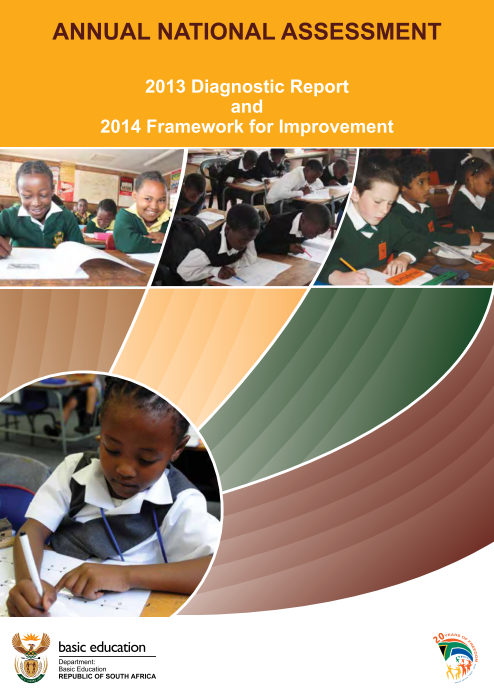The objective of FaSMEd’s Work Package 2 is to establish a baseline of data on the approaches to low achievers in maths and science in the EU and South Africa. The Work Package leaders have asked the questions below (in bold) and some responses have been added from published policy and research documents.
What is the general view of formative assessment in South Africa?
 It seems that formative assessment is recognised as important in the official rhetoric. For example, the Annual National Assessments (ANAs) aim to be used in formative ways. The 2013 Annual Report on these states that:
It seems that formative assessment is recognised as important in the official rhetoric. For example, the Annual National Assessments (ANAs) aim to be used in formative ways. The 2013 Annual Report on these states that:
“The evidence in this report must be built into normal teaching programmes and also be used to inform specific interventions to improve the levels and quality of learner performance in schools. The report also provides SMTs with objective evidence to identify areas where individual teachers need specific support in terms of both content knowledge and various methods of facilitating learning. The identified areas of required support will also influence the choice of relevant teaching and learning support materials.” (p.7)
However, research (e.g. Mkhwanazi 2011, Khosi, 2009) has shown that teacher knowledge of what formative assessment is, and how they can use it in their practice, is variable. Many teachers do not understand how to use assessment to inform their planning and do not provide constructive feedback for their students. Khosi further points out that even when teachers know how to use assessment in formative ways, large class sizes mitigate against its effective use.
Have there been any local, regional or National studies or initiatives in South Africa concerning formative assessment?
The same report (above) provides suggestions for improving teaching and learning in mathematics in two sections. The first is “Effective teaching and learning” and the second is “Using assessment to inform teaching”. In the section on using assessment, it states:
Analyse learners’ errors and/or misconceptions to understand their thinking processes. The errors learners make may be as a result of a misunderstanding of what the teacher taught or ineffective teaching methodology used by a teacher. The errors that learners make provide teachers with rich information that they can use to improve their teaching methodologies. Attending to these errors immediately when they occur will prevent them from developing into misconceptions. Effective assessment does not only focus on the correct answer (product), but on Mathematics procedures (processes) too.
Invest in formative assessment (assessment for learning) because it paves the way for enhanced learner performance when assessed using summative assessment.
Align assessment to teaching i.e. learners should be assessed on what they have learnt and how they were taught. In other words it will be highly unlikely that learners will perform well when asked to conduct an investigation if they were never taught through an investigative approach.
Expose learners to various types of questions such as multiple choice questions.
Expose learners to questions that are pitched at different cognitive levels such as questions that require straight recall (knowledge), routine procedures, complex procedures and problem solving. The main aim is to narrow the gap between formal or informal assessment that is internally set and conducted by teachers in different schools and external assessment such as common examinations that are set at provincial level or the Annual National Assessment set at national level.